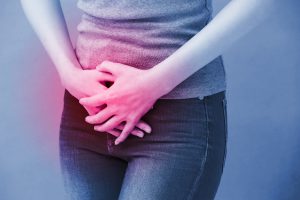November has been recognized as Bladder Health Awareness month, to serve as a reminder to get the facts about common bladder health problems and to encourage patients to take an active role in their bladder health.
There are many conditions that can affect the bladder one of the most common is urinary incontinence. Urinary incontinence is the involuntary loss or leakage of urine. According to the American Urological Association, about 1 out of 2 women and 1 out of 4 men suffer from some type of urinary incontinence.
Urge incontinence also known as overactive bladder and stress incontinence are the two most common forms of this health issue. Urge urinary incontinence is when urine leakage occurs with the sudden and strong desire to urinate. Stress urinary incontinence is when urine leakage occurs with physical activity such as laughing, sneezing, lifting or exercise. There are instances in which both urge and stress incontinence symptoms occur; this is known as mixed incontinence.
Depending on the type of urinary incontinence, extent of symptoms and treatment goals there may be one or more treatment options.
Treatment options include:
- Physical therapy
- Oral Medications
- Vaginal Devices (pessaries, incontinence inserts)
- Bladder Botox
- Surgery
There are a few things you can do to prevent common bladder health problems. Here are a few helpful health bladder tips.
- Manage daily fluid intake and reduce bladder irritants like caffeinated beverages and alcohol
- Limit or avoid very spicy and acidic foods that can bother the bladder
- Stop Smoking
- Stay active exercise regularly and don’t forget to keep your pelvic floor muscles strong with kegels
- Try to maintain a normal weight, excess weight gain can increase your risk of developing urinary incontinence
If fear of leaking urine stops you from doing things you enjoy, it may be time to consider treatment. Here at Jamaica Hospital we have providers who specialize in the treatment of bladder control issues. To learn more about treatment options for urinary incontinence or to schedule an appointment with one of our Urogynecologist, please call 718-206-7001.
All content of this newsletter is intended for general information purposes only and is not intended or implied to be a substitute for professional medical advice, diagnosis or treatment. Please consult a medical professional before adopting any of the suggestions on this page. You must never disregard professional medical advice or delay seeking medical treatment based upon any content of this newsletter. PROMPTLY CONSULT YOUR PHYSICIAN OR CALL 911 IF YOU BELIEVE YOU HAVE A MEDICAL EMERGENCY.


